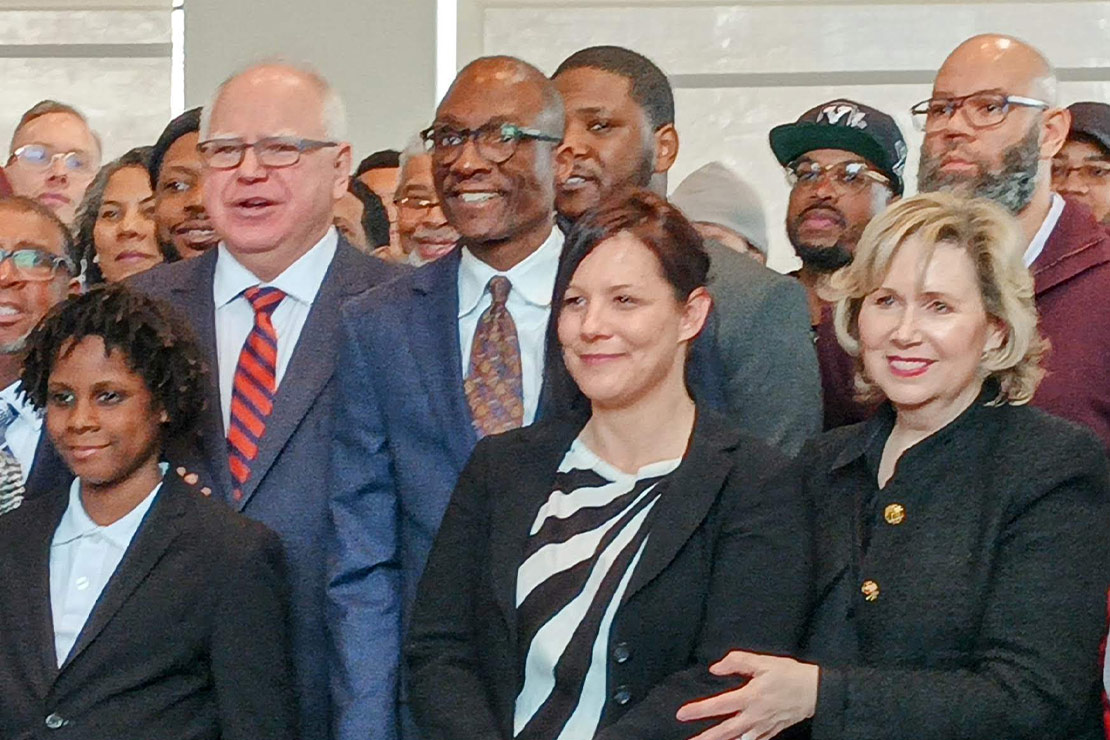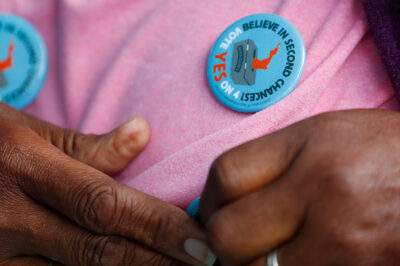
Schroeder v. Minnesota Secretary of State
What's at Stake
This case challenged the denial of the right to vote of people convicted of felonies but subject to parole, probation, or other supervised released in Minnesota.
Summary
On October 21, 2019, the ACLU, ACLU of Minnesota, and Faegre Drinker filed an action in Minnesota state court on behalf of people with felony convictions who are barred from voting while they are on supervision or probation, even after they have finished any prison term or even if they've never spent a day in prison. The suit challenged the denial of the right to vote of people convicted of felonies but subject to parole, probation, or another form of supervised release violates the Minnesota Constitution. The Minnesota Court of Appeals rejected this argument, disagreeing with the Plaintiffs’ interpretation of the Minnesota Constitution and holding that the due process and equal protection rights of Plaintiffs were not violated by the denial of their right to vote.
The Minnesota Supreme Court accepted the case on appeal, but ultimately affirmed the decision of the Court of Appeals. The court held that challenged provision “does not deny appellants’ fundamental right to vote because Minnesotans can define in their constitution who may vote and who may not vote, subject to the constraints of the United States Constitution and perhaps other provisions of the Minnesota Constitution,” and decided that “persons who have committed a felony may not vote, subject to being restored to that right by the Governor through the pardon process or by a different process approved by the Legislature.” Despite this ruling, the Court “recognize[d] the troubling consequences, including the disparate racial impacts, flowing from the disenfranchisement of persons convicted of a felony. The Legislature retains the power to respond to those consequences.”
In June 2023, the Minnesota legislature amended the law to allow people convicted of felonies but released for incarceration to regain their right to vote when it passed the Restore the Vote Act, which restored voting rights to over 50,000 people.
Legal Documents
-
02/15/2023
Minnesota Supreme Court Decision -
01/22/2022
Reply Briefs of Plaintiffs-Appellants -
11/16/2020
Opening Brief of Plaintiffs-Appellants -
08/10/2021
Order Granting Further Review at Supreme Court -
10/21/2019
Complaint
Date Filed: 02/15/2023
Affiliate: Minnesota
Date Filed: 01/22/2022
Affiliate: Minnesota
Date Filed: 11/16/2020
Affiliate: Minnesota
Date Filed: 08/10/2021
Affiliate: Minnesota
Date Filed: 10/21/2019
Affiliate: Minnesota
Press Releases
ACLU Responds to Minnesota Supreme Court Ruling Against Restoring Voting Rights to Minnesotans

